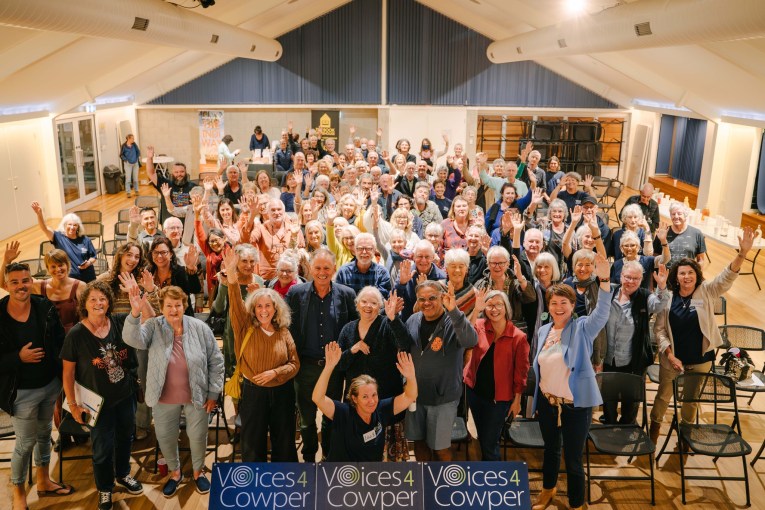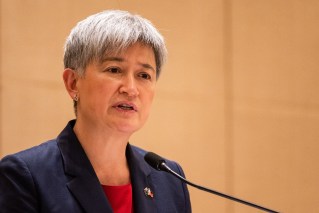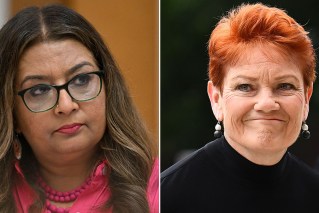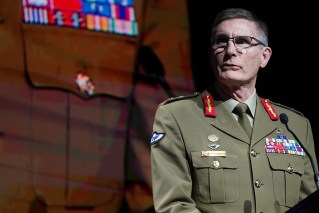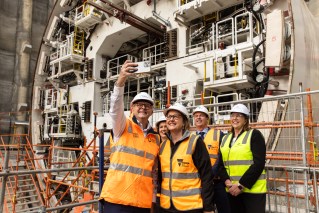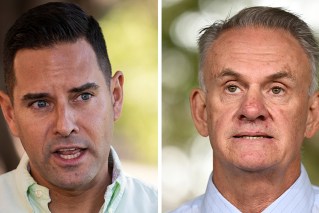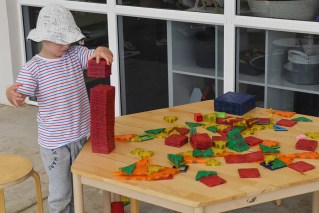Misleading Voice debate alienating Indigenous people: Referendum architect Jack Beetson

A misleading and confusing campaign against the Voice risks turning the referendum into a vehicle for excluding Indigenous Australians, one of its architects warns.
The ‘No’ campaign, under the de facto leadership of Peter Dutton and the Coalition, has pressed the government with hundreds of questions asking for details on the advisory body.
Polls show support for the Voice has fallen as a perception takes hold that the Voice is complicated or information is not being disclosed.
Jack Beetson was one of the 60 Indigenous people in a group that provided input into the wording of the Voice question to be put to Australians in the referendum later this year.
Mr Beetson, a veteran literacy campaigner, says these ‘No’ campaign questions are disingenuous and inflaming debate in ways that alienate Indigenous Australians.
“They carry on about the detail, but the Opposition is well aware of it – because it’s based on a report they commissioned,” he said (the Morrison government promised but junked a Voice to Parliament).
There are arguments that the Voice would be unable to address Indigenous disadvantage while another criticism implies it would be too powerful.
Both claims, he says, define the Voice unfairly and move the debate beyond logic and into harmful places.
“I think to myself every day, what can we do differently to shift this debate?,” he said.
The referendum will ask Australians to vote on changing the Constitution to entrench the Voice, an advisory body presenting its views to the government on policies affecting Indigenous people.
Like other bodies in the Constitution, details of how it operates won’t be set down in that document but determined by the Parliament of the day.
Matter of permanence
But the Voice would ensure there is a permanent form of Indigenous body to advise the government and MPs.
That matters, says Mr Beetson, who was appointed by the late Simon Crean to an agency for addressing Indigenous unemployment; it was thrown out after an election and replaced with something entirely different.
“We didn’t even get a letter,” he said.
Indigenous affairs have become deeply politicised, but a permanent, prominent place on the federal stage would make a difference, he says, after 35 years of trying to promote Indigenous education and literacy across communities frustrated by “piecemeal” and inconsistent policy.
Creating a Voice can’t be expected to redress over two centuries of intergenerational disadvantage.
But it’s the best chance to change a dire status quo reached after decades of policy failure, he said.
“Closing the Gap is one of the worst days of my year,” Mr Beetson said.
“I’ll have to listen to a report that says: ‘After all these years very little has changed’.
“How long have we had the Closing the Gap policy now? Fifteen years we’ve had that. And it hasn’t cut in yet.
”If anyone thinks that having a Voice from the first of January 2024 will rectify that, it [won’t]. It’ll be an intergenerational solution to those things because it was an intergenerational problem.”
Opponents of the Voice, including Peter Dutton, seized this year on a (now receding) crime wave in Alice Springs to suggest it would do nothing for substantive issues of Indigenous inequality.
“People say: ‘The Voice won’t do that’,” Mr Beetson said. “It won’t, on its own.”
‘What will fix things?’
“What will fix things ultimately? Not the Voice, but working together as Australians and leaving no one behind.
Mr Beetson says it’s the modesty of the Voice proposal relative to the fears being fanned by the current debate that makes it more dangerous than reasonable political disagreement.
“You couldn’t get a more modest and less threatening (request) than this.
“All we’re asking is that our advisory group be protected by the Constitution. That’s all we’re asking.
“Our advice couldn’t possibly do any more harm. The government will either take the advice or not. There’s nothing legally wound up in this.”
Bullying and teasing
Mr Beetson, who is a cousin of the rugby league immortal, talks of making small talk about flooding while taking a taxi in Cairns last week and wearing a distinctive red, yellow and black emblem on his hat.
“Don’t worry,” the driver said. “Your Voice will fix that.”
The referendum debate, he says, has encouraged a similar cynicism about Indigenous people across Australia.
“There’s evidence now that in different states in different territories, some of our kids are suffering from bullying and teasing at school over this referendum,” he said.
“Because of the nature of this debate [they] are being made vulnerable, and they’re not choosing to be vulnerable. How do we change that? I only wish I had the answer.”
‘Follow your heart’
It reminds Mr Beetson about the years before the 1967 referendum – because of which Aboriginal people are counted in the Census – and Charlie Perkins’ freedom ride.
A bus journey protesting racist laws, including a ban on Indigenous children at public pools, the rides went through north-west New South Wales, his home as a nine-year-old boy.
In their wake, Indigenous people in smaller towns were exposed to brutality while others were fearful. But the movement also brought change.
“I ponder (the referendum) on a daily basis and what a ‘No’ vote means.
“People don’t want to talk to us about the things that affect our lives directly? Is that what it is?”
He says he hopes Australians are not losing focus of what is being asked of them at the referendum.
“You’ve got people, between 500,000 and 800,000 of them, a very young population, and all they’re asking for is an advisory body to government to be protected in the Constitution.
“Follow your heart on this one.”
